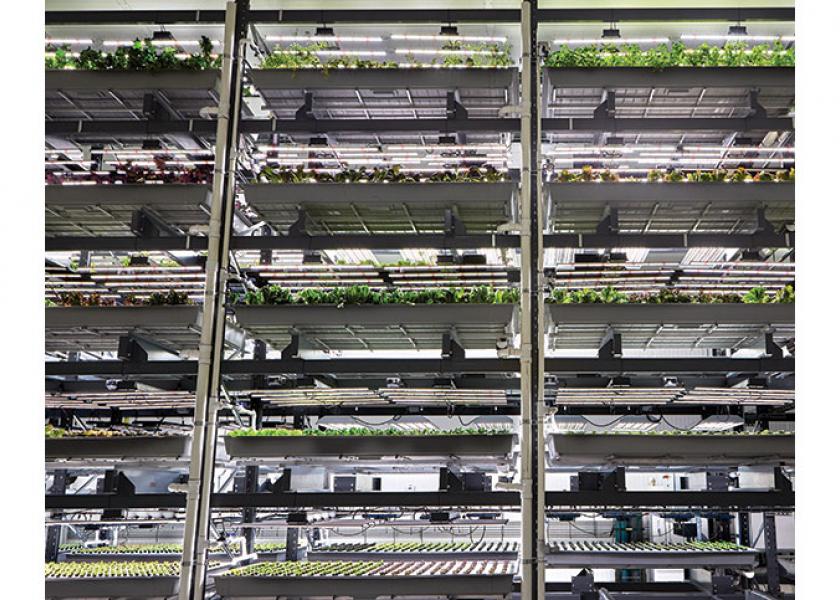New Jersey ag businesses get guidelines for COVID-19

For more COVID-19 related news click here.
New Jersey officials and produce leaders are grappling with how to mitigate the health and safety of the state’s people as it is the second-most dangerous U.S. state for the new coronavirus, COVID-19.
By May 23, the state had almost 11,000 deaths due to COVID-19 and 152,700 cases, according to the Centers for Disease Control and Prevention. New York has more than twice the death toll, with 28,800 coronavirus deaths by that time.
To that end, New Jersey Gov. Phil Murphy issued COVID-19 guidance May 21 on working conditions, as well as testing and treatment procedures, to help agricultural businesses and farmworkers lower the risk of and potential exposure to COVID-19.
Thousands of seasonal farmworkers, migrant and local, come to New Jersey farms in the spring and have to work close by their coworkers, plus they often rely on employer-provided group transportation and camp-style housing.
“Protecting seasonal workers on these farms is a high priority because they work and live in close proximity to one another,” state health commissioner Judith Persichilli said in a news release.
“The health department is working with growers, local health departments and our federally qualified health centers to minimize that risk and to ensure that once they are tested, follow-up and isolation and quarantine plans are in place for workers,” she said in the release.
Once a worker is suspected or diagnosed with COVID-19, the state guidance advises employers to contact the local health department and immediately assign the worker a separate bathroom and provide separate living space or alternate housing, if effective isolation in their current living space is not possible.
Workers who were in close contact with the affected workers are to be screened and watched for symptoms.
Costs related to testing and treatment for COVID-19 will not be charged to the employer or worker, according to the news release.
“Any hospitalization or isolation housing provided by the state of New Jersey will not be charged to employers or workers,” the guidance said.
The guidance also sets out conditions for when employees can return to work and outlines existing employment-based protections for workers.
That guidance prohibits employers from firing or punishing an employee who requests or takes time off due to a medical professional’s determination that the worker has or is likely to have COVID-19. Most workers will be eligible for paid sick time if they contract COVID-19 and also may be eligible for workers compensation if they get COVID-19 while working, according to the release.
“We have a responsibility and an obligation to make sure these workers — and the farmers who hire and house them — maintain safe and healthy workplaces in which to harvest and bring to market the state’s crops,” said Labor Commissioner Robert Asaro-Angelo.
Strict food safety protocols already in place have made following this kind of guidance less daunting, said Bill Nardelli Jr., vice president of sales and marketing for Nardelli Bros. Inc., which has its Nardelli Lake View Farms, cooling and packing facilities in Cedarville, N.J., and its distribution center in Vineland, N.J.
“It’s been a good basis to work off of,” Nardelli said, mentioning his company’s third-party audits with Primus and USDA.
He also wanted to thank the workers at the retail and distribution levels.
“You can’t say enough about the people working at the stores, from the distribution at the warehouse to the store-level clerks, produce managers and all the people,” Nardelli said.
“They’re doing a great job for everybody and really helping get the products to the store shelves where people really need them.”
Many growers, packers, shippers and marketers have detailed COVID-19-updated safety policies on company websites. That includes indoor farms.
As part of its standard operating procedures based on third-party audits at indoor aeroponic, vertical AeroFarms, Newark, N.J., employees wear personal protective equipment including a hairnet, face cover, safety gloves, glasses and overcoat. The company’s HVAC filtration systems have a minimum efficiency reporting value (MERV) rating of 13.
Before entering the AeroFarms workplace, employees are evaluated with infrared thermometers and sent home if symptomatic. Surfaces are being sanitized multiple times a day, more hand-sanitization stations were established, and the company is enforcing social distancing, promoting work-from-home when possible, and equipping drives with more sanitation supplies.
The automated characteristics of indoor agriculture that don’t require many workers in one place have been an advantage during the COVID-19 pandemic, said Carmela Cugini, executive vice president of sales at Bowery Farming, New York. The compay has two indoor farms in Kearny, N.J.
Bowery’s operations haven’t been affected so far during the new coronavirus, Cugini said.
Like other farms, Bowery already had strict food safety standards in place and has stepped up sanitizing, cleaning, social distancing and added masks.
“By using our machine learning and using vision sensors, we really don’t have anybody growing in the farm, and we have very few people operating the farm,” she said.
For the employees who pack the leafy greens and herbs, food safety and government guidance is followed.
“We’re talking to them every day, trying to understand their situation. If people have to flex their hours because of childcare, we’re allowing that to happen. We’re doing things like preparing meals for them to take those meals home and not just for themselves, but for them and their family,” Cugini said.
Related content:
Snapshot: NJ produce season through the eyes of Nardelli Bros.
How indoor, vertical Bowery Farming is faring during COVID-19
New Jersey crops even out after warm, cool spells
New Jersey marketers highlight locality and shift with times







